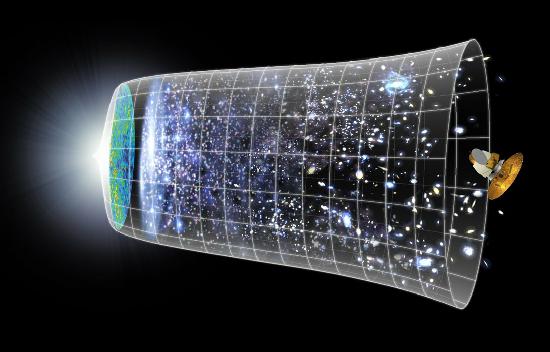
The expansion of the universe from its start in the Big Bang (left), through a period of rapid inflation at the start, to the formation of stars and galaxies, to the gently accelerating expansion of today (right). The satellite pictured is the WMAP probe which measured the cosmic microwave background radiation leftover from the early universe.
The expansion of the universe over most of its history has been gentle. But at the start physicists now believe there was a brief, very rapid period of "inflation". The theory of inflation is supported by observations of the "cosmic microwave background radiation", which is radiation left over from an early stage in the development of the universe.
In 1997 it was also discovered that the current expansion of the universe is very slowly accelerating. It is not understood why this is happening. A constant energy density pervading space would cause a similar effect, so it has been named "dark energy" until we understand it better.
The accelerating expansion has important consequences for the ultimate fate of the universe. Eventually the galaxies will become so far separated that they will no longer be visible from each other. However there are many billions of years before this happens.
Author: Tom Brown
Copyright: public domain
Date last modified: 11th Oct 2011
Peer-review status: Not yet peer-reviewed
CMB timeline: source: NASA, copyright: public domain